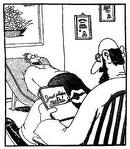Aspergers Critical Issues: What Every Parent and Teacher Should Know

The following is "must have" information for parents and teachers who are dealing with an Aspergers (high functioning autistic) child: Characteristics of Aspergers— 1. Youngster with Aspergers have a neurological condition, which means that they are learning how to socialize and understand the thoughts and feelings of other people, have difficulty with a natural conversation, and can develop an intense fascination in a particular area of interest and be a little clumsy. These problems are best described as a combination of developmental delay and an unusual profile of abilities. Over time the youngster improves. 2. Another feature of Aspergers is delayed emotional maturity. 3. Aspergers is considered as part of the autistic continuum or spectrum and there is one language disorder that borders or overlaps this continuum. 4. Aspergers is not caused by emotional trauma, neglect or failing to love a youngster. The research studies have clearly established th
